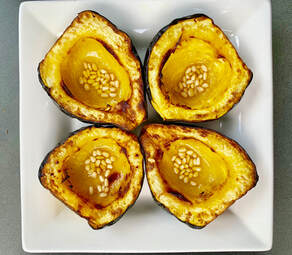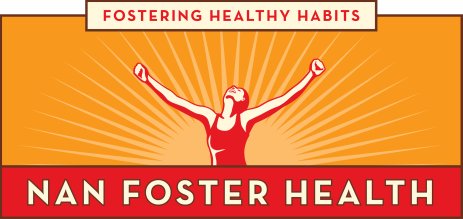
The more recent field of epigentics – epi meaning the space above and around the genes – has taught us that we can influence which genes get turned on or "expressed" and which get shut off. This includes genes that code for diseases like cancer, Alzheimer's and heart disease. Would you believe only 5-10 percent of our genes are fixed? The other 90-95 percent are switched on and off, influenced by our exposure to all things that aren't genetic: our food, water, air, social connections, sleep, alcohol, exercise and stress as well as our parents' health when we were conceived – something to consider when planning to have children. In fact, current research shows that your lifespan can be extended by 13 years by simply addressing your choices, and thereby, which genes get expressed.
Take identical twins, for example, raised in two different places. One lives on a farm eating real, whole foods, walking to school daily and helping the family out by working in the field, walking, squatting, pulling weeds and crops and getting their hands in the microbe-rich dirt. The other twin is raised in an urban environment, eating many convenience foods as both parents work outside the home. The most common pastime is sitting – on subways, at school and on the couch. Hand sanitizer to keep bacteria and viruses away flows freely. Which twin do you think ended up healthier? Research has found that twins exposed to such varying lifestyles can have vastly different health profiles due to their different gene expression.
SIMPLE STEPS YOU CAN TAKE
Here's where your choice comes in.
1. DIET
- Maintain a healthy weight
- Keep food simple, real, non-processed and organic
- Eat a wide variety of plant-based foods with any type of diet
- Take cooking classes
- Don't smoke
- Drink moderately (or not at all)
- Get 7-9 hours of sleep per night
- Give yourself a bed time
- Stay physically active
- Walking daily
- Meditation and yoga calm the nervous system
- Resolve conflicts and clean up relationships in your life
- Regularly connect with others including family, friends, partners, community
Each of these activities influences our genes. Exercise, for example, positively affects 7,660 – genes (that's 1/3 of all our genes!) modifying our risk for cardiovascular disease, diabetes, colon and breast cancers, obesity, hypertension, bone and joint diseases and depression.
You can learn more about epigenetics and personalizing your health choices in my book, Gutsy, (link here near top of page) and by watching my 10-minute talk called, "Get Healthy By Addressing Food and Mood" here.
Roasted Acorn Squash
Serves 4
Print Recipe
2 acorn squash
olive oil
1/2 teaspoon salt
4 t pine nuts
2 t coconut oil or ghee
2 t maple syrup, optional
Preheat oven to 350 degrees. Cut ends off of acorn squash. Then cut squash in half lengthwise. Scoop out seeds and discard. Place cut sides up onto sheet pan. If needed, cut off small slice of underside of each piece to create a flat surface enabling squash to sit upright. Using hands or a pastry brush, lightly coat orange flesh with olive oil. Lightly sprinkle salt over all 4 pieces.
Roast for 40 minutes or until fork tender through squash. Add 1/2 teaspoon of the coconut oil or ghee to the "bowl" of each squash. Then add a teaspoon of pine nuts to each bowl. Put back into oven for 2-3 minutes. Remove from oven. Drizzle 1/2 teaspoon maple syrup over each piece if desired. Enjoy!
